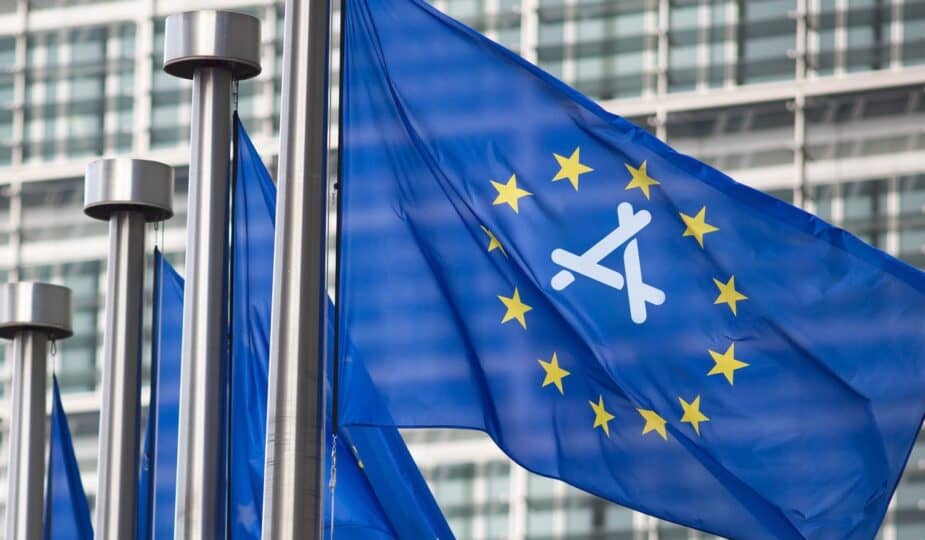EU wants the impossible with Apple's App Store
 3 Facebook x.com Reddit
3 Facebook x.com Reddit
The European Union has demanded that Apple stop using geolocation technology that makes apps and services look different in different countries — completely ignoring decades of laws and practices in other industries that have nothing to do with the App Store.
Give the EU credit, it has implemented laws against big tech companies that other countries, including the US, still only talk about. But in this case, its assumption that it can simply dictate how the rest of the world works is outrageously over the top.
The new demand is that Apple stop geo-blocking, and specifically that EU users be able to:
- Use the same interface as in other countries
- Use credit cards registered in different countries
- Download apps that aren't available in their home country
The first point is hard to understand, and the EU’s full description is no clearer. It states that “consumers are only allowed to access the interface designed for the country in which they registered their Apple account.”
However, Apple Music is Apple Music, and no matter where you are in the world, the music may be different. There are countries where some services like Apple Music are not available at all, but that doesn’t seem to be what the EU is trying to say.
The second point, that Apple should stop preventing EU users from using credit cards or other payment systems from different countries, is also a bit odd. If you live outside the US, you may already be familiar with the fact that no US company will refuse to accept your money.
That leaves the last part, the question of Apple stopping “not allowing consumers to download apps offered in other countries.” That’s not just odd, it’s downright embarrassing, because it means the EU has no clue.
International Rights Agreements
Forget Apple, it’s not Apple’s problem. The reason some apps aren’t available in some countries is the same reason Saturday Night Live isn’t shown in the UK.
Or why Star Trek might sometimes be on Paramount+ in the US, but on Netflix in France and on another service entirely in Spain.
The rights to properties like TV shows, movies, apps, books and every form of media ever created are incredibly complex, and no EU requirement will overturn decades of contracts and legal precedent.
Curiously, apps may be the easiest form of media to make available worldwide – in theory. Developers actually have the ability to say that their app should be released worldwide when they upload it.
But in practice, if the EU had been able to push through this ridiculous idea, developers would have suffered just as much as any other creator.
The Problem for Developers
If you're required to make your app available in every country, you're now bound by the laws of each individual country. That includes tax laws, although if you sell your app exclusively through the App Store, Apple handles the tax.
Except, of course, the EU, which has forced Apple to allow third-party app stores. So either those third-party stores would have to pay the global tax, or the developers would.
Then very few developers actually create every single element of their apps. They might hire graphic designers, use stock images, license music.
Every element of every app would have to be approved for international use if the EU had its way. Even if the app was for Cook County Parish Council, it would still be available everywhere.
How We Got Here and How We Stay Here
If media, including apps, were launched now, perhaps the global situation would be different. Perhaps all the licenses and all the taxes would be the same.
But that is not the case and will not be, no matter what the EU wants.
Because, beyond the cost of any individual app or media, there are other issues. DVD region coding was specifically created so that studios could control when and where to release their films.
They might even like to see films released worldwide immediately, but they can’t afford it. Marketing campaigns are staged, and releasing films worldwide is an investment that can equal the hundreds of millions of dollars spent on the film’s production.
Or take Apple itself. Apple launched the Apple Card in the US in 2019, and according to the EU, it should never have been limited to the States.
The EU constantly claims that it is implementing laws explicitly for the benefit of the consumer and against the dominance of Big Tech. But developers are consumers too, creators are consumers too, marketers are too.
The burden that the EU's move would place on all of them would be unbearable. Only the dominant Big Tech companies would be able to afford to release apps or other media.
And even if it were physically possible, such a change in the law would result in each of them passing on significantly increased costs to the consumer.
Politicians are frighteningly ill-informed
We've seen individual politicians be shockingly, shamefully ignorant about the issues they're trying to legislate on. But for all the truly excellent work the European Union and the European Commission are doing, this overreach is a stunning result of what's supposed to be a serious review.
Specifically, the EU document announcing it says it follows a “coordinated investigation at European level”. The Consumer Protection Network (CPC) of “national consumer protection authorities and the European Commission” is led by what are actually described as “competent” national authorities.
According to the EU, Apple now has one month to respond and “offer commitments on how they will address the geo-blocking practices identified.”
“If Apple fails to address the concerns raised by the CPC Network, national authorities may take enforcement action to ensure compliance,” the EU continues.
There’s a note that depending on “Apple’s response, the CPC Network may enter into a dialogue with the company.”
You can bet there will be a dialogue. One of the parties will say something like “in my sleep.”
Follow AppleInsider on Google News










